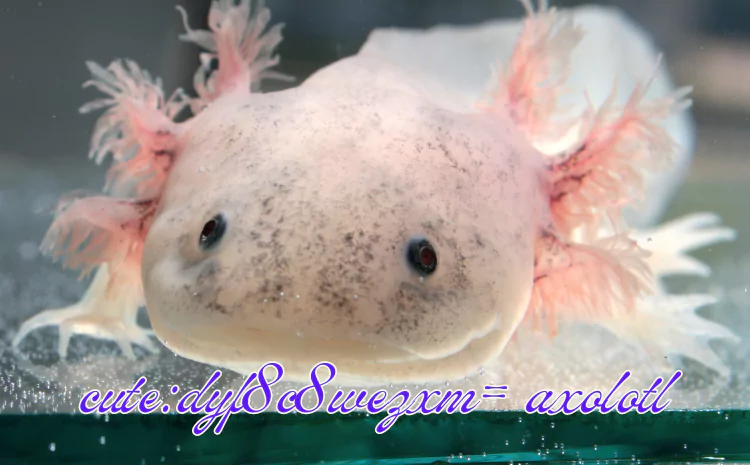Axolotls are often mistaken for baby salamanders, but they are actually a distinct species with their own unique characteristics. Native to Mexico, axolotls are known for their remarkable ability to regenerate lost body parts and their cute, perpetual “baby” appearance.
What is an Axolotl?
An axolotl (Ambystoma mexicanum) is a type of neotenic salamander. Unlike most amphibians that undergo metamorphosis, axolotls retain their larval features throughout their lives. This means they live underwater with gills, a trait that sets them apart from other salamanders.
Brief History and Origin
The axolotl’s name comes from the Nahuatl language spoken by the Aztecs, where “atl” means water and “xolotl” means monster or deity. Historically, these creatures were revered in Aztec culture and were commonly found in the lakes surrounding Mexico City.
Physical Characteristics
Size and Appearance
Axolotls typically grow to about 9-12 inches in length. They have a soft, smooth body that comes in a variety of colors, including wild-type (dark brown), leucistic (pale pink), and albino.
Distinctive Features
One of the most distinctive features of the axolotl is its external gills, which resemble feathery structures on either side of the head. These gills are not only a key identification trait but also essential for their respiration.
Habitat and Environment
Natural Habitat
In the wild, axolotls inhabit lakes and canals in Mexico. They prefer cool, freshwater environments with plenty of aquatic vegetation.
Captive Care
When kept as pets, axolotls need a well-maintained aquarium with clean, cool water. They are sensitive to water temperature and quality, so regular monitoring is crucial.
Behavior and Social Structure
Activity Patterns
Axolotls are nocturnal creatures, meaning they are most active during the night. During the day, they tend to rest in sheltered areas of their habitat.
Social Interactions
In the wild, axolotls are generally solitary. In captivity, they can be kept together if their tank is large enough, but they should be monitored to prevent aggression.
Diet and Feeding Habits
Natural Diet
In the wild, axolotls feed on small fish, insects, and worms. Their diet is high in protein, which supports their growth and health.
Feeding in Captivity
Pet axolotls can be fed a diet of high-quality pellets, live worms, and small fish. It’s important to provide a varied diet to ensure they receive all necessary nutrients.
Reproduction and Lifespan
Reproductive Behavior
Axolotls breed in water, with the male performing a courtship dance to attract a female. After mating, the female lays eggs, which hatch into larvae.
Life Cycle
Axolotls can live up to 15 years in captivity, although their lifespan in the wild is generally shorter due to environmental threats.
Regenerative Abilities
How Regeneration Works
One of the most fascinating aspects of axolotls is their ability to regenerate limbs, spinal cord, and even parts of their heart and brain. This regenerative capability is a subject of extensive scientific research.
Significance in Research
Researchers study axolotls to understand the mechanisms behind regeneration, which could have implications for human medicine and regenerative therapies.
Health and Common Issues
Common Health Problems
Common health issues in axolotls include fungal infections, skin lesions, and issues related to water quality. Regular tank maintenance and monitoring can help prevent these problems.
Preventative Care
Maintaining clean water, providing a balanced diet, and avoiding overcrowding are key to keeping axolotls healthy.
Conservation Status
Threats to Wild Populations
Axolotls are critically endangered in the wild due to habitat destruction, pollution, and the introduction of invasive species.
Conservation Efforts
Efforts to conserve axolotls include habitat restoration, captive breeding programs, and public awareness campaigns to protect their natural habitats.
Caring for Axolotls as Pets
Tank Setup and Maintenance
A proper tank setup for axolotls includes a spacious aquarium with a filtration system, water conditioner, and a substrate that is easy to clean.
Feeding and Diet Tips
Ensure that your axolotl’s diet is varied and nutritionally balanced. Monitor feeding times and amounts to avoid overfeeding.
Interesting Facts and Trivia
Unique Traits
Axolotls are known for their wide range of colors and patterns, making each one unique. Their ability to remain in a juvenile state throughout their life is also quite rare among amphibians.
Cultural Significance
In Aztec culture, axolotls were associated with Xolotl, the god of fire and lightning. They were considered to have mystical properties and were sometimes used in rituals.
Myths and Misconceptions
Common Myths Debunked
One common myth is that axolotls can regrow entire organs; while they can regenerate limbs and some tissues, they do not regenerate complete organs.
What You Need to Know
Axolotls are not as fragile as some myths suggest. With proper care, they can be thriving and lively pets.
Axolotls in Popular Culture
Representation in Media
Axolotls have appeared in various forms of media, from documentaries to fictional works, often highlighting their unique appearance and abilities.
Role in Art and Literature
Artists and writers have long been fascinated by axolotls, using them as symbols of transformation and mystery.
How to Get an Axolotl
Where to Buy or Adopt
Axolotls can be purchased from specialized breeders or pet stores. It’s essential to choose a reputable source to ensure the health and well-being of the animal.
What to Look For
When selecting an axolotl, look for signs of good health such as clear skin, active behavior, and a healthy appetite.
Conclusion
Axolotls are truly remarkable creatures with a charm and mystique all their own. From their fascinating regenerative abilities to their role in both science and culture, these amphibians continue to capture the imagination of many. Whether you’re considering one as a pet or simply intrigued by their unique characteristics, axolotls are a testament to the wonders of the natural world.









